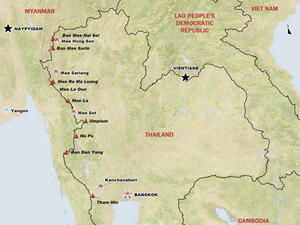European Court of Human Rights ruling
European Court of Human Rights ruling
UNHCR welcomes a ruling by the European Court of Human Rights that sending back of asylum seekers to situations where they could face persecution violates the European Convention of Human Rights, regardless of whether the oppressors are governments or others.
The decision acknowledges that persecution which drives people into exile comes from different sources, such as paramilitary or rebel groups and not just governments - an argument which UNHCR has made repeatedly.
The Court's decision, announced in Strasbourg last week, referred to the case of a Sri Lankan man who fled to Britain from Germany where he faced deportation after his asylum claim was rejected. Germany had turned down the man's asylum claim, arguing that he would have nothing to fear from the Sri Lankan state if sent back, even though the man said he feared persecution from non-state agents.
Britain then decided to send the Sri Lankan man back to Germany under the Dublin Convention - a 1990 European agreement which allows European Union countries to deport asylum seekers to countries where they first sought asylum.
The Court heard the case at the request of the individual who contested the deportation order and argued that he would be at risk of being sent back to Sri Lanka by Germany. The ruling did not oppose this particular man's deportation from Britain to Germany, after Germany said it decided to hold off on sending him back to Sri Lanka.
But the Court's ruling said the Dublin Convention cannot be automatically applied to deport asylum seekers to countries from which they could then be sent back to where they came from.






